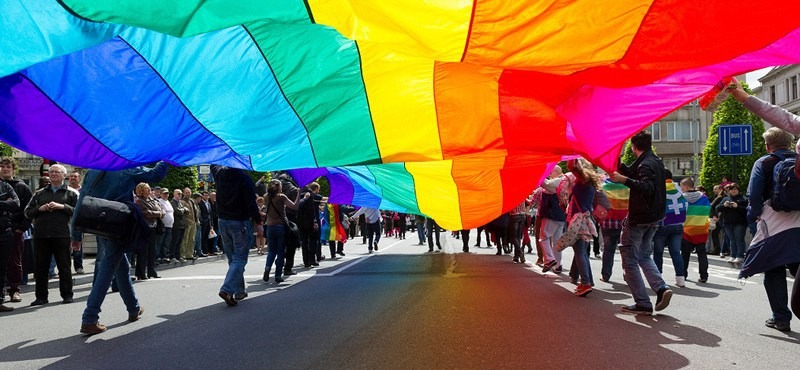The Serbian Government wants to cancel the EuroPride in Belgrade, one of the biggest LGBTQ events in the world, following threats of far-right violence, but the organisers keep pushing for the event to take place as planned.
The EuroPride event with a parade was first organised in 1992 in London, and has taken place in a different European capital every year since then – with a break due to the Covid-19 pandemic.
This year's EuroPride should take place from 12 to 18 September in the Serbian capital Belgrade. However, Serbian President Aleksandar Vučić last weekend said he would "postpone or cancel" the event, citing "bigger problems" that would prevent his government from allowing the EuroPride to go ahead.
These problems ranged from fierce opposition from right-wing and far-right groups and the Orthodox Church, to out-of-control inflation and the "considerable crisis in Kosovo."
'Any ban would be illegal'
In Kosovo, a former province of Serbia that declared independence in 2008, tempers recently flared over a confrontation between the Serbian and Kosovan governments over number plates and identity papers.
"At some point, you simply cannot handle everything at once, and that is it," Vučić said, adding that he wants the event to continue in the future "at a different, more cheerful time." However, EU foreign chief Josep Borrell said on Saturday that an agreement had been reached on the issue.
Meanwhile, the organisers of the EuroPride reacted to the news with anger, and promised that the event would still go ahead – including a parade in front of parliament on 17 September.
"Vučić cannot cancel our event. EuroPride has not been cancelled and will not be cancelled. Any ‘ban’ would be illegal," said Kristine Garina, chair of the European Pride Organisers Association. She added that "the right to hold the Pride is recognised by the European Court of Human Rights as a fundamental human right."
Related News
- 'Biggest ever' Antwerp Pride Parade draws 120,000 visitors
- One in four LGBTQ+ people have experienced physical violence
- Flanders would rather see women holding hands than men
Pride marches in Belgrade have a long history of contestation and violence by opponents: in 2001, football fans and far-right militants beat up participants; in 2010, Molotov cocktails from anti-pride demonstrators were again thrown around and injured dozens of civilians and police officers.
Earlier this month, a Serbian Orthodox bishop also cast "a curse" via Youtube on the EuroPride participants, who he said would "desecrate" Belgrade. "If I had a weapon, I would use it," he said, standing in full orange on the steps of a church.
At the 2019 EuroPride in Vienna, about half a million people took part in the parade. This year, many foreign guests were also expected in Belgrade, including a number of MEPs.

